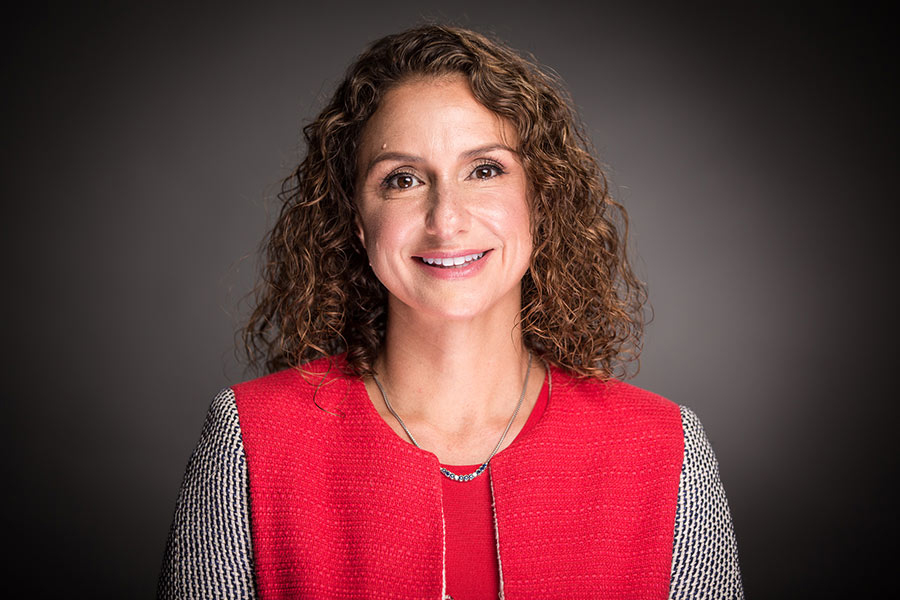Lila Ibrahim
DeepMind
For her noteworthy managerial and entrepreneurial success in leading multiple venture capital and tech companies’ growth efforts by creating frameworks for performance management, technological infrastructure, portfolio development initiatives, business models and firm-wide operating processes.
Read More
DeepMind
For her noteworthy managerial and entrepreneurial success in leading multiple venture capital and tech companies’ growth efforts by creating frameworks for performance management, technological infrastructure, portfolio development initiatives, business models and firm-wide operating processes.
Pathfinders have more arrows in their back than in their front. Stop occasionally to pull the arrows out, so you can run further and faster.
— Craig Barrett, former CEO and Chairman, Intel Corporation
Career Highlights
| 2018-present | Chief Operating Officer, DeepMind |
|---|---|
| 2015-2019 | Member, Board of Directors, Gannett/USA Today |
| 2013-2017 | President, Chief Business Officer, and Chief Operations Officer, Coursera |
| 2010-2015 | Senior Operating Partner and Chief of Staff, Kleiner Perkins Caufield & Byers |
| 2007-2010 | General Manager, Education Platform Group, Intel Corporation |
| 2004-2007 | Chief of Staff, Intel |
| 1999-2004 | Director and Founder, International Intel Developer Forum, Intel |
| 1993-1999 | Technical Marketing Engineer and Technical Account Manager, Intel |
| 1993 | BS Electrical Engineering, Purdue University |
Biography
 Known for her ability to blend her technical expertise with skillful and creative leadership, Lila Ibrahim has helped to grow some of the world's leading technology companies, like Intel Corporation.
Known for her ability to blend her technical expertise with skillful and creative leadership, Lila Ibrahim has helped to grow some of the world's leading technology companies, like Intel Corporation.
Now, as the Chief Operating Officer at DeepMind, a company whose commitment to the scientific approach and responsible innovation is pioneering a path forward for Artificial Intelligence, Ibrahim oversees technology and organizational infrastructure including engineering and operations. She also is Co-founder and Chair of Team4Tech, a nonprofit organization that engages technology professionals on immersive service learning projects in developing countries, advancing the quality of education for underserved students while simultaneously providing leadership development opportunities for employee volunteers.
“One of the things that drew me to Purdue was the Co-Op Program, which I saw as an opportunity to learn about applying engineering to real-world challenges,” Ibrahim says. As a Purdue sophomore, she became the first Purdue student to co-op with Intel Corporation. She learned how to code in assembly language and worked on what would later become known as the Pentium microprocessor.
“I absolutely loved it,” Ibrahim says. “I believe the Co-Op Program accelerated my transition to full-time employee and fast-tracked my development. I still talk about this being one of my most important career decisions — and as a hiring manager, I pay close attention to experiences students gain in the workforce.”
She says Purdue’s sophomore-year electrical engineering curriculum was her first experience with academic struggle: “The experience of not understanding things easily or not succeeding on the first try was formative for me. It taught me to be humble, to ask for help, and to truly appreciate the support of my professors, friends, family and mentors. As a result, I became more driven to help others in their journeys.”
Ibrahim’s emphasis on helping others is evident throughout her career. In 2000, she took a two-month sabbatical from Intel to build a computer lab in the Lebanese orphanage that had been her father’s childhood home. This year, she’s upgrading the computer lab at the orphanage. She subsequently built technology for K-12 education at Intel. She also delivered 400,000 computers in Portugal and trained 30,000 teachers in one year.
Recognition has followed. In 2007, she was named a Young Global Leader by the World Economic Forum. In 2010, she was awarded the Women of Vision Award for Social Impact by the Anita Borg Institute, and named an Outstanding Purdue Electrical and Computer Engineer.
She offers this advice for current Purdue undergraduates: “Explore, push the boundaries of what you think is possible, and lay the foundation for a lifetime of learning.
“With the world changing so quickly, your success is going to depend less and less on the specific skills you develop in college, and more and more on your ability to innovate and adapt. Also, don’t wait to define your legacy. You’re constantly defining it — with every connection and every achievement. The sooner you start thinking about the mark you want to leave on the world, the more impact you’ll be able to have.”
